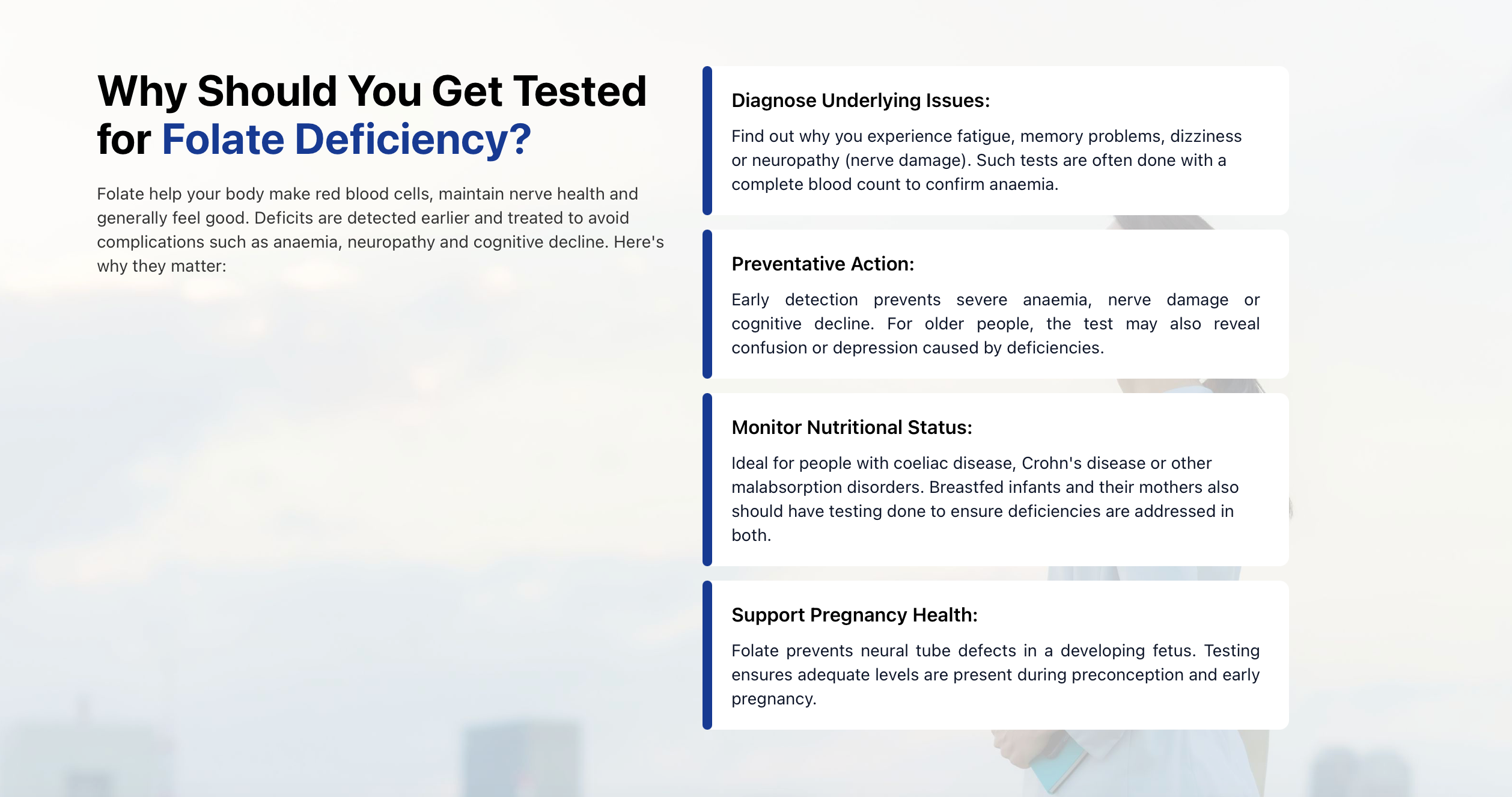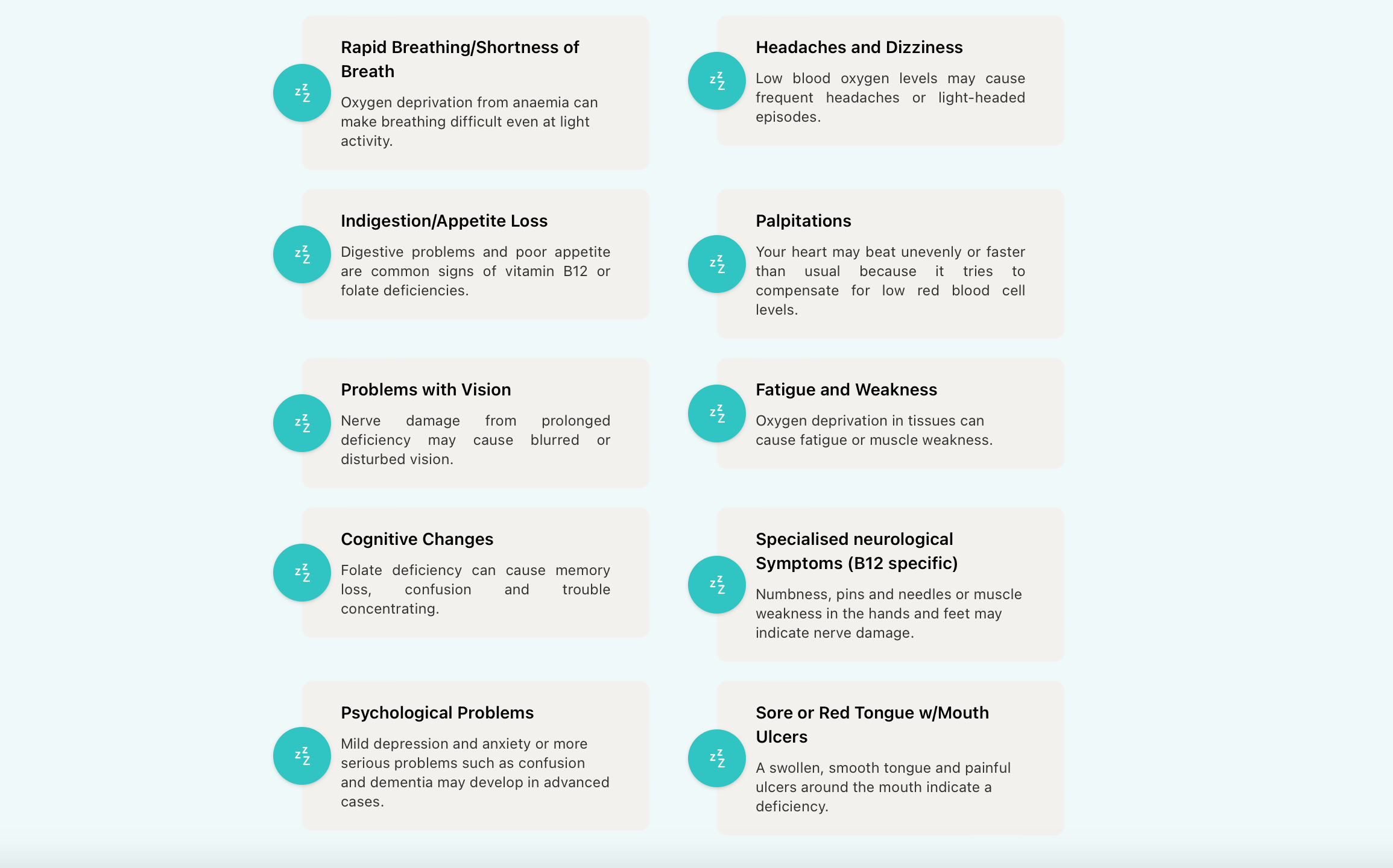FAQ's
What do Folate do?
What do Folate do?
Folate: Found in leafy greens, citrus fruit, dried beans and fortified grains, folate is needed for cell division and DNA repair. And it is particularly important during pregnancy for fetal nervous system development. Deficiency of folate may result in neural tube defects in newborns, fatigue and poor immune function.
What causes deficiencies?
What causes deficiencies?
Deficiencies in folate can arise from various factors, impacting your overall health. Here are the key causes and risks:
- Insufficient Intake: Folate deficiency may occur in those who consume unbalanced diets low in leafy greens, citrus fruits, or fortified grains.
- Malabsorption Issues: Conditions like coeliac disease, Crohn’s disease, or pernicious anaemia reduce nutrient absorption in the digestive tract. Surgeries like gastric bypass or bowel resection, and medications like Metformin, can impair absorption.
- Increased Demand: Pregnancy significantly raises the body’s requirement for folate to support fetal development. Chronic illnesses or infections can also increase demand for these vitamins.
- Chronic Alcohol Use: Excessive alcohol consumption interferes with absorption and increases excretion, leading to deficiencies. It also impairs liver function, affecting nutrient metabolism.
How can deficiencies impact?
How can deficiencies impact?
- Macrocytic Anaemia: Characterized by abnormally large red blood cells, macrocytic anaemia reduces oxygen delivery to tissues, causing fatigue, weakness, and pale skin. Left untreated, it can lead to severe complications.
- Neuropathy: A Folate deficiency can cause nerve damage, resulting in symptoms like numbness, tingling, and muscle weakness. Severe cases may lead to loss of coordination and difficulty walking.
- Neural Tube Defects: Folate is critical in the early weeks of pregnancy. Deficiency increases the risk of neural tube defects, such as spina bifida, which can have lifelong consequences for the child.
- Cognitive Decline: Folate deficiency are linked to poor cognitive function, depression, and an increased risk of dementia. Long-term deficiencies may contribute to Alzheimer’s disease and other neurodegenerative disorders.
What is measured during the test?
What is measured during the test?
Your Folate test measures the concentrations of nutrients in your serum (the liquid part of your blood). These markers help reveal how the body is making new red blood cells, repairing tissue, making DNA and maintaining nerve health. This test is particularly important in detecting deficiencies early to prevent serious complications.
What can I expect during the test?
What can I expect during the test?
No special preparation is required; you can eat and drink as usual before the test. Inform your healthcare provider if you are pregnant or taking medications, as these may affect the results.
A simple blood sample will be taken from your finger prick.
Your blood sample is processed and analysed using advanced machines to measure Folate levels.
The test only takes about 15 minutes. You can relax comfortably while the sample is analysed.
Your results will indicate whether your Folate levels are within normal ranges or if a deficiency is present.






